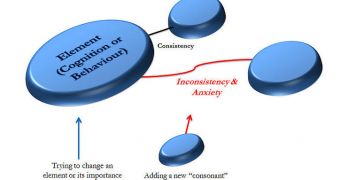According to a new research, it would appear that cooperating with people in a friendly way has a number of cognitive benefits, which means that whatever problem is being discussed is quickly solved.
But the benefits are lost if a conversation meant to help with cooperation is carried out in a competitive tone, rather than a friendly one, say investigators from the University of Michigan.
“This study shows that simply talking to other people, the way you do when you’re making friends, can provide mental benefits,” explains U-M Institute for Social Research (ISR) psychologist Oscar Ybarra.
For the new investigation, the researchers looked at how various types of interactions affected executive functions in the brains of test subjects.
These functions are a key component in mental activity, the researchers say, adding that their experiments consisted only of short social contacts, which delivered maximum impacts.
They add that executive functions include, among other, the ability to withstand both internal and external distractions, the performances of the working memory, as well as accurate self-monitoring.
The research team believes that all of these traits are critically important in everyday life, when people try to solve common or complex problems.
Some 192 undergraduates were put in social situations during the studies, as they attempted to solve common problems, and the researchers looked at which type of interaction helped out the most.
Details of the investigation appear in a paper authored by Ybarra, which will appear in an upcoming issue of the esteemed journal Social Psychological and Personality Science.
For the purpose of this study, the researchers asked all participants to engage in 10-minute conversations, in which each member of the pair was asked to get to know the other.
In the people who were asked to talk about common things, the experts noticed a large degree of improvements in subsequent cognitive tests.
But participants who also discussed issues having to do with competition faired no better in the other assessments, Science Blog reports.
“We believe that performance boosts come about because some social interactions induce people to try to read others’ minds and take their perspectives on things,” Ybarra believes.
“And we also find that when we structure even competitive interactions to have an element of taking the other person’s perspective, or trying to put yourself in the other person’s shoes, there is a boost in executive functioning as a result,” he concludes.

 14 DAY TRIAL //
14 DAY TRIAL //